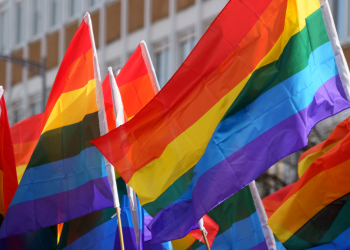Last updated on June 22nd, 2023 at 11:02 am
The Biden administration has released a report highlighting the mental health challenges faced by Americans who identify as gay, lesbian, or bisexual. According to the report, individuals in these groups are more likely to suffer from major depression, abuse illegal drugs, and attempt suicide. The report cites “invisibility and erasure” as contributing factors to these higher rates of mental distress, but critics argue that this explanation is flawed and ignores other underlying causes. The report also reveals that individuals who have sex with members of the same sex, or both sexes, experience lower quality of life in various measures.
The survey conducted by the Substance Abuse and Mental Health Services Administration found that drug abuse rates, including methamphetamines and tobacco use, were significantly higher among gay or bisexual individuals compared to heterosexuals. Bisexual individuals had the highest levels of illegal drug use. In addition, those who identified as lesbian or bisexual were more likely to engage in substance abuse, including the use of cocaine, heroin, and prescription drugs. The report also highlighted the higher prevalence of mental illness among sexual minorities, including major depressive episodes, suicidal ideation, and suicide attempts.
Critics argue that the report’s focus on “invisibility and erasure” as the main reasons for these challenges is a flawed interpretation of the data. They suggest that underlying traumas, such as childhood abuse, play a significant role in the higher rates of mental distress among the LGBT community. Studies have shown that a high percentage of individuals who identify as LGBT report experiencing childhood sexual abuse, which can impact their mental health and substance abuse patterns later in life.
In conclusion, the Biden administration’s report sheds light on the higher rates of mental distress, substance abuse, and suicide attempts among Americans who identify as gay, lesbian, or bisexual. While the report points to “invisibility and erasure” as contributing factors, critics argue that it overlooks the impact of underlying traumas, such as childhood abuse.




















Discussion about this post